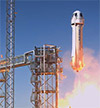It happened again in 2015, according to IBM Global Location Trends. For the second time in three years, the state was ranked at the top of the list in terms of job creation linked to foreign direct investment. According to Randy Boyd, commissioner of the Tennessee Department of Economic and Community Development, “For years, Tennessee has been a prime choice for investments from Japanese companies. But this report highlights that interest in Tennessee now comes from all over the world.”
Filling the Workforce Pipeline
Indeed, roughly 920 foreign-owned companies now employ more than 123,000 people in Tennessee. These companies have collectively invested more than $33 billion in the state. Last year, more than 40 percent of the pledged capital investments came from foreign-owned companies, and they accounted for about 30 percent of the promised job creation.
Andrew Dunn, director of FDI, acknowledges that Tennessee is benefiting from an overall realization among global companies that the United States is a great place to manufacture goods. Upon that solid foundation, he says, are Tennessee’s geographic location advantages. Roughly three quarters of the nation’s population is within a day’s drive, he says, and there are solid transportation assets for connecting with end-users and suppliers — by road, rail, air, and water.
But the state’s FDI success is a lot more than just serendipity. Dunn believes a large part of it has to do with the proactive way that Tennessee has dealt with challenges — particularly workforce-related issues. Finding appropriately skilled people to fill new and existing jobs is a headache virtually everywhere, but Dunn says Tennessee’s answers have helped win admirers among international companies. “Every state is scrambling to try to educate people for these types of manufacturing jobs,” he says. “Tennessee has put into place the Tennessee Promise and Tennessee Reconnect,” he added, referring to a program that offers two years of tuition-free community or technical college for Tennessee high school graduates and another that works with adults to go back to complete unfinished postsecondary degrees. In all, foreign-based companies pledged $1.2 billion in Tennessee investments in fiscal 2016, with Japanese companies leading the way at $710 million
It’s not just a matter of finding people at the outset, when a new facility is opening, Dunn adds. International companies are making decisions for the long term, and they like what they see in Tennessee. “What we’ve put into place is going to ensure that we have a pipeline of talented workers for them if they want to grow and thrive in the U.S.,” says Dunn.
Automotive Presence
The automotive industry represents an ever-increasing part of the picture when it comes to Tennessee FDI. Foreign automotive original-equipment manufacturers Nissan and Volkswagen are anchors that have attracted a wealth of suppliers, led by such names as Denso and Bridgestone. According to the state’s most recent FDI white paper, Nissan is the state’s biggest foreign-based establishment, employing 8,000 people in Smyrna plus more than 4,000 at other Tennessee locations. Denso has 3,150 on the payroll in Maryville and more than 1,300 in Athens. Volkswagen provides work for nearly 2,400 in Chattanooga. And more than 2,000 people work at two Bridgestone facilities.
Truth be told, Tennessee probably has a hard time keeping its chart of foreign-based establishments up-to-date, given the rapid pace of location and expansion announcements. For example, South Korea-based Hankook Tire has been gearing up to begin production by year-end 2016 at an $800 million plant in Clarksville that’s expected to employ up to 1,800 when it’s fully up-and-running. And in the spring of 2016 Hankook announced it would locate its North American headquarters in Nashville. According to Hankook’s Vice Chairman and CEO Seung Hwa Suh, “We believe by relocating our headquarters to Nashville, Hankook Tire can benefit from the people, resources, and infrastructures of Tennessee.”
The state has, in fact, become a magnet for foreign-based tire companies. Beyond Hankook and Japan-based Bridgestone (which also picked Nashville for its North American headquarters), the Italian tire company Marangoni Tread North America, Inc. has a Middle Tennessee presence. And China-based Triangle Tire USA picked the region for its American headquarters.
Automotive Industry / Tennessee FDI
The automotive industry represents an ever-increasing part of the picture when it comes to Tennessee FDI. Foreign automotive original-equipment manufacturers Nissan and Volkswagen are anchors that have attracted a wealth of suppliers, led by such names as Denso and Bridgestone.
-
Nissan North America Plans $160 Million Expansion At Smyrna, Tennessee, Assembly Plant
In March 2015, Nissan North America announced it woul invest $160 million to build a new supplier park at their vehicle assembly plant in Smyrna, Tennessee.
-
Volkswagen Group of America Expands Chattanooga, Tennessee, Manufacturing Campus
In July 2014, Volkswagen said $600 million would be invested in Tennessee with 2,000 new jobs being created in Hamilton County.
-
DENSO Manufacturing Tennessee Plans $400 Million Expansion At Its Maryville, Tennessee, Manufacturing Hub
In August 2015, Denso Manufacturing Tennessee said it would expand its automotive components and systems manufacturing plant in Maryville, Tennessee.
-
Bridgestone Americas Relocates To Expanded Headquarters In Downtown Nashville, Tennessee
In November 2014, Bridgestone Americas, Inc. announced plans to relocate its headquarters to a $232.6 million, 514,000 square foot, 30-story headquarters in downtown Nashville, Tennessee.
-
South Korea-Based Hankook Tire Constructs Of $800 Million Clarksville, Tennessee, Tire Production Plant
In October 2014, South Korea-based Hankook Tire began construction on its new $800 million state-of-the-art tire manufacturing plant on 469-acres in Clarksville, Tennessee.
-
Hankook Tire America To Locate North American Headquarters in Nashville, Tennessee
In April 2016, Hankook announced it will locate its North American headquarters in Nashville, Tennessee. The global tire manufacturer said it will invest approximately $5 million and create up to 200 jobs in Davidson County.
In all, foreign-based companies pledged $1.2 billion in Tennessee investments in fiscal 2016, with Japanese companies leading the way at $710 million. A quarter billion in investments came from Chinese companies, and $115 million from companies based in Canada. Investments have been arriving from all over the world, and while automotive companies are setting the pace, they’re far from the only ones. For example, in 2015 the Swiss bank UBS announced a 1,000-job project in Nashville.
As pleased as he is by all of the positive headlines, Dunn wants to strengthen the state’s engagement with foreign-based companies. He’s been overseeing an expansion of Tennessee’s overseas presence, which at one point was mostly limited to an office in Japan. But the state’s FDI success is a lot more than just serendipity. Dunn believes a large part of it has to do with the proactive way that Tennessee has dealt with challenges — particularly workforce-related issues.
Commissioner Boyd has asked Dunn to open more Tennessee front doors in global places. Dunn responded by adding recruitment representatives in such places as Germany, Italy, and South Korea, then set his sights on such places as China, the United Kingdom, and the Western European region known as Benelux (Belgium, the Netherlands, and Luxembourg). TNECD expects to bring on board new international representatives in the coming year.
State leaders continue other kinds of global outreach, too. In the autumn of 2016, for example, Boyd led a delegation to a conference in Tokyo, and he and Gov. Bill Haslam traveled to Germany to meet with executives of German companies considering U.S. operations, as well as German companies already operating in Tennessee. Boyd and Haslam also traveled to Korea, China, and Japan in the spring.
Customer service is the name of the game, Dunn says. Clearly, things were working pretty well before, but Dunn says Tennessee wants to ensure that today’s headlines transform into tomorrow’s long-term partnerships. “We need to do as much as we can to ensure that everyone looking at the U.S. for a business location looks at Tennessee. We think, in the long term, this is relationship-building.”



